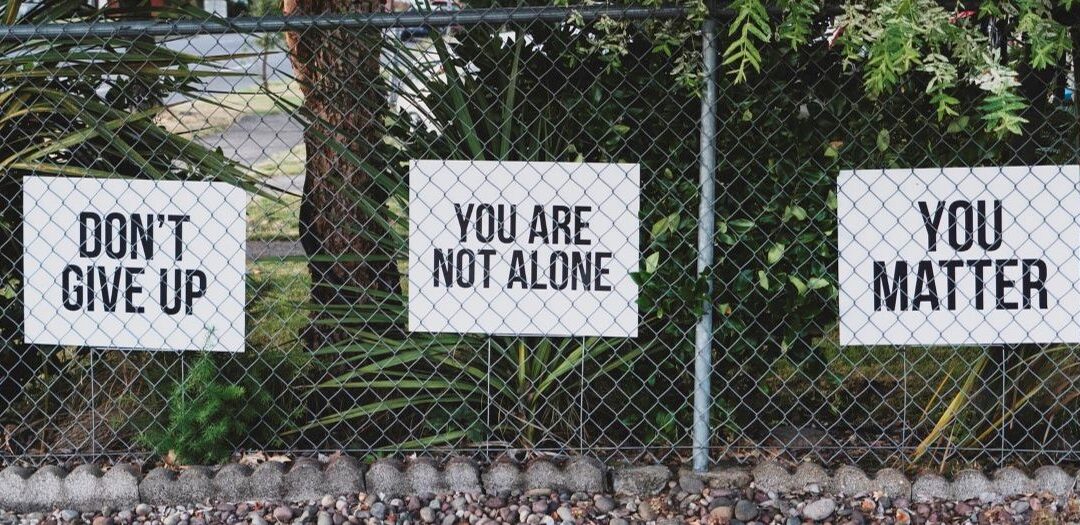In honour of September being Suicide Prevention Month, we at Westmeria wanted to take the opportunity to explore how to best support yourself, or anyone you know who may be struggling.
Firstly, it’s important to understand you are not alone in experiencing these thoughts. Any fracture in our life or mental health can leave us feeling alone and vulnerable. Thoughts of suicide can be a response to this. Secondly, anyone who is suicidal is not ‘weak’ or ‘bad’ – the opposite is true, individuals experiencing suicidal feelings are often trying to reduce the intensity of how low they are feeling.
The dilemma with suicide is that it’s a permanent solution, there is no going back. For this reason, we feel passionately that addressing why someone may feel suicidal is key.
This is where talking to a friend, family member, work colleague or therapy can help. A therapist can offer a safe space, somewhere where you can explore how low you feel, free of agenda, advice or judgement. With suicide, we can be afraid to ask someone if they are suicidal, often wondering if saying the word would make someone more likely to act. In fact, by being open about suicide, it is much more likely to help someone not do it. The organisation Talk Suicide explore one of the steps in dealing with suicidal thoughts; say it. Acknowledgment means that someone can realise it’s OK to feel this way, and it’s OK to talk.
The rate of suicide hit a 19 year high at the end of 2019, with three quarters of deaths being men. Highlighting the importance and urgency of spreading the knowledge, compassion and support for anyone feeling or experiencing suicidal ideas. The Samaritans can be a point of support, and Dr Elizabeth Scowcroft, the head of research at Samaritans notes: ‘Every single one of these deaths is a tragedy that devastates families, friends and communities. Suicide is complex and rarely caused by one thing.’
This is where compassion, and the ability to be ‘heard’ is important if you support anyone with suicidal thoughts. You don’t have to be a professional, just patient enough to listen and kind enough not to judge.
Rather than fear what feeling suicidal means, consider the notion that suicide can offer a sense of relief to anyone who doesn’t feel they have other tools to cope with trauma and life complexities. Let’s address how else to cope, and support someone with these feelings. This notion can transform how to be with someone who is suicidal. Feeling suicidal is a response to trauma; beginning to talk and be open about suicide means someone can find other, more creative, less achingly permanent ways of addressing their trauma.
Let’s put this into practice – you notice changes in someone you care for, they are more withdrawn, seem to have a lower mood, less motivated, their language revolves around ‘having no purpose’ or ‘what’s the point’, maybe even ‘Would anyone even notice if I wasn’t here anymore?’ A natural reaction to noticing this might be panic, ‘I don’t know how to help them!’ However, rather than avoid speaking to this person, consider letting them know you’ve noticed ‘You seem different lately, are you OK?’ Encourage a conversation where this person senses permission to talk openly, if they admit to feeling suicidal in any way, don’t carry the responsibility for what happens next. Begin to empower the person, let them know that there are other people who want to listen to them too. Signpost them to support. Can you see how someone feeling suicidal might feel less intensity when they are treated with respect and empathy?
So, if you were to signpost someone, or would like knowledge for yourself, here is a list of charities and organisations who might be able to help.
Samaritans: Telephone Number 116 123 or email jo@samaritans.org
CALM (Campaign Against Living Miserably): 0800 585 858
Papyrus (Prevention of Young Suicide): 0800 068 4242
Mind: 0300 123 2293
You can call your GP and ask for an emergency appointment or call 111 after hours,
If you feel in immediate danger, call 999 or go your local A&E department
As well as signposting, it may be helpful to encourage a person experiencing suicidal thoughts to create a ‘support plan’ for themselves, for when their thoughts are very intense. They can write this plan down, and keep it somewhere safe for when they feel they need it.
What are the warning signs (thoughts, feelings, situations, behaviours) that indicate a crisis may be developing?
What coping strategies can they put in place to help them through this period? What has helped previously? This could be meditation, yoga, reading etc.
Where can they go to feel safe? This could be in their room with a blanket, to a parents’ house, to a coffee shop with a friend.
Who can they contact to ask for help? This could be a friend, sibling or parent.
What professionals can they reach out to if they feel unsafe? This could be the Samaritans, a mental health team, or their GP. Make sure to write down the contact number.
Remember, we believe suicide is preventable, and it’s OK to acknowledge that you, or someone you love, are having these feelings. The person feeling suicidal will already be judging themselves, lets show them compassion, kindness and patience and offer them other means of coping.
Written by Zoe, Westmeria Counsellor

